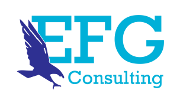In the face of heightened geopolitical tensions, climate change concerns, and trade barriers that have raised questions about the future of the global economic order, the UAE has demonstrated extraordinary resilience, the Minister said
The UAE has showcased resilience and economic diversification amid global challenges, Abdullah Bin Touq Al Marri, the Minister of Economy for the UAE said at the Dubai Business Forum, which took place at Madinat Jumeirah on November 1.
Highlighting the remarkable resilience and proactive measures taken by the Emirates to address global challenges during a recent speech, Al Marri also spoke about the UAE’s response to the COVID-19 pandemic and its commitment to economic diversification, sustainability, and international cooperation as key factors contributing to the country’s success.
In the face of heightened geopolitical tensions, climate change concerns, and trade barriers that have raised questions about the future of the global economic order, the UAE has demonstrated extraordinary resilience, Al Marri said
Diversifying UAE economy away from oil
One of the key strategies employed by the county is the pursuit of economic diversification, with a focus on reducing reliance on oil and fostering knowledge-based industries.
“Today, the non-oil sector accounts for approximately 71 percent of our GDP, illustrating the success of these diversification initiatives. The UAE is leading the way in sustainable finance. Our commitment to becoming a global hub for green finance and investment is underlined by our efforts to reduce greenhouse gas emissions.
“We have been among the first countries to recognise the importance of addressing the climate crisis, while ensuring economic growth as part of our pledge to reduce carbon emission by 40 percent by 2030,” he said.
The country’s efforts in diversification have yielded impressive results, with the non-oil sector now accounting for approximately 71 percent of the country’s GDP.
By investing strategically in sectors such as innovation, technology, and sustainable finance, the UAE has not only mitigated the impact of oil price fluctuations but also positioned itself as a regional leader in various industries.
The UAE has also been at the forefront of sustainable finance and has committed to becoming a global hub for green finance and investment, Al Marri said.
By reducing greenhouse gas emissions and investing in renewable energy sources like solar and wind, the UAE aims to drive economic growth in an eco-friendly manner.
Such initiatives align with the country’s recognition of the importance of addressing the climate crisis while ensuring continued economic growth.
The country’s structural reforms, including the enactment of permission transaction laws, 100 percent ownership rights, and the modernisation of the residency system, have contributed to the robust performance of the national economy.
In 2022, the Emirates experienced one of the highest GDP growth rates globally, with the non-oil sector expanding by 7.2 percent.
This growth trajectory aligns with the UAE’s vision of doubling its economy by 2021.
Foreign direct investment (FDI) has remained a “key driver” of growth for the UAE, Al Marri said, with the country attracting $20.7 billion in FDI in 2021, despite the global repercussions of the COVID-19 pandemic.
The country’s business-friendly environment, strategic location, and pro-business reforms have further fostered investor confidence, leading to substantial FDI inflows, Al Marri revealed.
The tourism sector has also played a crucial role in the UAE’s economic resilience, with effective pandemic management allowing the country to open international borders and introduce innovative initiatives to enhance the tourism experience.
UAE tourism sector is a ‘significant contributor’ to GDP
In 2022, the UAE witnessed a remarkable 15 percent increase in international tourism, surpassing pre-pandemic levels and generating revenues of $7 billion.
“Our hotel occupancy rate reached an impressive 75 percent among the highest not only regionally but also on an international stage. On trade, the UAE strategic location and world class infrastructure have continued to drive growth.
“We learn to harness our strategic geographical location and form authentic policies to become a centre player on the world stage,” he said.
The country’s strategic location and world-class infrastructure have continued to drive growth in trade. With the signing of comprehensive economic partnership agreements (CEPA) with key developing countries such as India and Indonesia, the UAE has become a vital gateway to regional and global markets.
In 2022, the total non-oil foreign trade volume exceeded $600 billion for the first time in the country’s history, growing by 17 percent year-on-year.
As the UAE looks ahead, Al Marri revealed the country remains committed to building a sustainable and inclusive economy.
The government recognises the importance of the private sector in promoting economic growth and employment creation, and it continues to create an enabling environment for businesses and investment.
Despite global and regional uncertainties, the UAE’s economy has demonstrated robustness, with a growth rate of 3.7 percent in the first half of 2023. The non-oil sector, in particular, experienced a staggering growth rate of 5.9 percent, outperforming other GCC countries.
SOURCE&CREDITS: arabianbusiness.com

